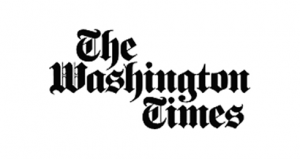Foundations can help ignite passionate citizenship
 •
•
How did America as a fledgling nation 239 years ago grow into a superpower standing for human freedom across the globe? This is a question that inspires me and motivates me as a citizen to make sure that young people in particular know the answer to that question. If such principles are to last, they must first be understood. And that’s why civic learning is so necessary.
As a Chairman of my own nonprofit foundation, I decided to incentivize students to do better in civics. As a former Member of Congress, I am all too aware that the American Story is not known by a majority of Americans, particularly students. When Newsweek Magazine had 1000 Americans take the immigrant citizenship test, too many flunked it. When ten American University students were interviewed asking them to name one U.S. Senator, only one of ten could, but all ten knew the name of the theme song from the movie “Frozen.” We chuckle at popular television programs that show the ignorance of ordinary Americans about basic U.S. history, government, economics, and foreign policy; but such ignorance is detrimental to our national spirit.
To inspire young people to be better citizens and to understand the answer to the question above, my nonprofit Foundation (see www.nethercuttfoundation.org) hosted a regional Citizenship Tournament, offering scholarships and other valuable prizes for 4th, 8th and 12th grade students who competed at their grade level against their peers, testing their civic knowledge. Supported by the local Teachers’ Union, Better Business Bureau, Boy Scouts, and many private businesses and individuals, hundreds of students participated in the Tournament as it effectively mixed civic knowledge with community service tasks. Winning students, with teachers and parents, were awarded scholarships, electronics prizes and educational travel to observe federal, state and municipal governments and leaders at work.
The Foundation received some 550 applications from more than 40 schools and awarded $25,000 in scholarships, prizes, and civic-related travel. The goal was to give area school children a chance to learn about our history and government as well as engaging in their community by completing the citizen tasks in the tournament process.
We’ve also produced a popular television series, “U.S. History by the Minute,” a series of 60-second videos that focus on an important message about Founding principles and U.S. history. My book, In Tune with America: Our History in Song, combines essential U.S. history that all Americans should know, with the music of American history. A new Civics/Citizenship web app, announced at the Illinois Boys State conference, contains valuable civic learning information that will make passage of the immigrant citizenship test easier and be essential for anyone seeking public office.
Civic learning enhances American society by connecting America’s past, and the lessons to be learned from it, with America’s future, as young people today become the leaders of tomorrow. If they understand how America developed from a new nation in 1776 to where we are today and the principles that have been fought and died for—justice, human rights, rule of law, equality, capitalism, and free market economics—leaders of all political parties can better craft the values and principles necessary to support the United States in the future in a complicated world. Families that possess civic knowledge and regularly discuss current events and civic principles are better citizens—they volunteer more to improve their communities, they vote more often, and they are more engaged citizens in our nation’s life. As leaders, they’re better equipped to advocate for a strong America and embrace concepts that lead to improvement of the American spirit—for all.
Civic learning is nonpartisan. Organizations as diverse as Opportunity Nation, seeking better economic opportunity for all Americans, to the nonprofit Joe Foss Institute that places special emphasis on veteran outreach in teaching vital American principles, to former Justice O’Connor’s nonprofit iCivics acting as a valuable resource for students and teachers, to the Gallup organization, stressing core values and learning strengths—all support the idea that learning American values strengthens our nation. Famous actor Richard Dreyfuss and prominent author/historian David McCullough support better civic learning. Girls and Boys State organizations emphasize good citizenship and quality leadership skills in their participants. Scouting has Merit Badges that focus on citizenship.
As Constitution Day approaches, and Americans appreciate that the U.S. Constitution is the longest-surviving written national constitution in history, let us focus equally on more Americans learning and respecting the American story—valuing the sacrifices of our forefathers who stood strong so that future generations could be free—understanding the principles of government that have helped America prosper, and that what we do today can make us freer, as a nation and as a people.
I would like to challenge other donors to replicate what our foundation has done and give incentive to more young people across the country. I also invite donors to join with me in the National Constitutional Literacy Campaign.
• George R. Nethercutt, Jr. is a former U.S. Congressman who represented the 5th Congressional District of Washington from 1995-2005. In 1996, George Nethercutt formed the nonprofit, independent George Nethercutt Foundation (initially the STAR Program—Students Taking Action and Responsibility), providing students with dedicated academic instruction about American history and leadership, including an all-expenses-paid trip to Washington, D.C. to meet public officials, lobbyists and members of the national press, followed by students dedicating 60 hours of volunteer time at home.









